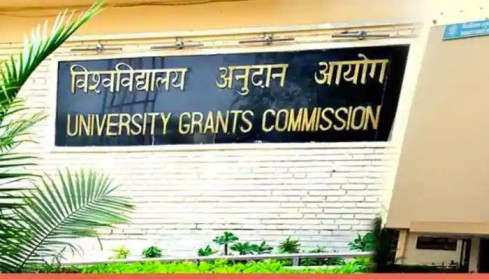Foreign universities ranked globally among the top 500 or other foreign higher education institutions considered “reputed” can set up campus in India and decide their fees, according to the University Grants Commission’s draft rules that also appear to suggest these institutions can repatriate their profits.
Some educationists fear that the proposed regulations, uploaded on the UGC website on Thursday with feedback from the public sought by January 18, might lead to a dilution of quality and allow higher education to turn into a purely commercial venture.
The National Education Policy (NEP), adopted in 2020, stipulated that “those from among the top 100 universities in the world will be facilitated to operate in India”. But the draft UGC regulations say: “NEP 2020 has envisioned that ‘top universities in the world will be facilitated to operate in India’.”
The draft UGC (Setting Up and Operation of Campuses of Foreign Higher Educational Institutions in India) Regulations, 2023, add that a foreign university will be eligible if it has been ranked among the top 500 — overall or even subject-wise — by any international ranking agency.
■ For foreign higher education institutions that are not universities — a category that mainly includes technical and professional institutions — they should be a “reputed” institution in their home country. The word “reputed” has not been defined.
The Concise Oxford Dictionary defines “reputed (adj.)” as “passing as being but probably not being”. Presumably, the word the UGC wants is “reputable”, which the COD defines as “of good repute, respectable” — which still remains a matter of subjective evaluation in the absence of laid-down criteria.
■ According to the draft regulations, the foreign university/ institution will be free to decide its admission process, fees, number of seats, teacher qualifications, salary structure and conditions of service for faculty and staff — a freedom far greater than even autonomous Indian institutions enjoy.
The foreign institution will be barred from offering courses in online or distance mode, or offering any programme of study that jeopardises India’s national interest, for instance, the country’s security or relations with other nations.
■ “Cross-border movement of funds and maintenance of Foreign Currency Accounts, mode of payments, remittance, repatriation, and sale of proceeds, if any, shall be as per the Foreign Exchange Management Act (Fema) 1999 and its Rules,” the draft regulations say.
Educationist Furqan Qamar, former adviser to the erstwhile Planning Commission on education, said the draft regulations should have spelt out “repatriation” of what.
“The impression is that these foreign institutions will make surplus or profit from education activities and repatriate the amount to their main campus abroad,” Qamar said.
Education in India has been a not-for-profit activity, with any surplus earned through educational activities required to be ploughed back into the institution’s expansion programmes. But the draft regulations allow foreign institutions operating as profit-making companies in their host countries to set up campuses in India.
“This has raised fears that these companies will make similar profit in India. In this process, profit-making will be formalised in education in the next few years. Students from poor families and backward classes will be further detached from higher education,” Qamar said.
Currently, India has no legal provisions for foreign universities to set up campuses in the country on their own. The UPA government had in 2010 introduced a bill in the Lok Sabha for foreign universities to operate in India. The bill prohibited repatriation of surplus earnings but could not be passed for a lack of consensus among political parties.
Qamar said the entry of foreign universities may not stop Indian students from leaving to study abroad.
“Students want to go abroad for the experience, and for the income opportunity overseas. This will not be available in India,” he said.
“Getting higher education can be cheaper abroad, anyway, as the students can finance their studies through on and off-campus jobs, assistantships, etc.”
Under the draft regulations, foreign institutions can offer undergraduate, postg raduate, doctoral, post-doctoral and other programmes in India. They have to apply to the UGC for approval with information on the infrastructure and academic programmes they will provide and the faculty and financial resources they will have.
They must also specify what alternative arrangements they will make for their students if forced to close the India campus for some or other reason.











